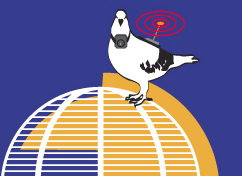Christine Nadir
Visitor
|
Re:Colonial Paradigms, Female Prisons & New Selves - 2006/05/18 12:03
Joline argues that frontier mythology limits our imagination of virtual space to dichotomies of public commons and private property, the wild and the civilized, the refuge and the prison—with the result that the discourses of activist organizations like EFF accept colonization even while seeking dubious freedoms. Some questions / thoughts:
The fight for commons is not only an American struggle, so is there anything we can learn about thought on public space from elsewhere? Vandana Shiva writes on and organizes struggles in India, extending the enclosure of the commons to both intellectual property rights and the corporate ownership of life itself in the form, for example, of patented seeds that replace indigenous seeds to the point of extinction or plants engineered to kills bees and prevent pollination: “My fight against patenting and genetic engineering is a fight against the enclosure of the biological and intellectual commons that is the basis of survival of the large majority of the people of the world.” (http://zmagsite.zmag.org/Dec2002/shiva1202.htm). Do non-U.S. discourses of the commons present alternatives that we can learn from, e.g. linking perhaps a multitude of environments mediated and nonmediated? What is lost / gained when we speak of digitally networked environments through ecological metaphors?
Relating Joline’s discussion to the ecological also raises the possibility of learning from another area of thought that is currently working through its permeation by U.S. frontier mythology: American ecocriticism and environmentalism. Environmental historian William Cronon has pointed out that mainstream American environmentalism desires an “uninhabited wilderness,” an ahistorical space to get away from it all that simply does not exist—or is made to exist only after ridding it of people. As a result, Cronon argues: “In its flight from history, in its siren song of escape, in its reproduction of the dangerous dualism that sets human beings outside of nature—in all of these ways, wilderness poses a serious threat to responsible environmentalism… Idealizing a distant wilderness too often means not idealizing the environment in which we actually live, the landscape that for better or worse we call home…. Calling a place home inevitably means that we will use the nature we find in it, for there can be no escape from manipulating and working and even killing some parts of nature to make our home” (Cronon, “Trouble with Wilderness” in Uncommon Ground [NY: WW Norton, 1996] 81, 89).
In an initial effort to work through a frontier-informed environmentalism as well as to respond to the relative absence of “nature” and its basis as our homes and lives within new media technologies / digital discourses, Cary Peppermint and I created a series of videos entitled “A Series of Practical Performances in the Wilderness.” Links to the videos can be accessed at http://restlessculture.net/practicalperformance/. Recently posted to dvblog.org, this work attempts to bring wilderness (back) into the global digital network. Moving beyond nature as simply metaphor for networks (e.g. the Web, Rhizome, iPod, etc.) or nature as preserved wilderness/frontier, Cary and I tried to work with a relatively “natural” environment as a historical space and a place of performance: labor, foraging, food, friendships, “philosophical bickering” (as one reviewer called it)—an actively used hunting shack interrupts the pastoral while new media technologies are used to plug nature (back) into digital networks.

|
